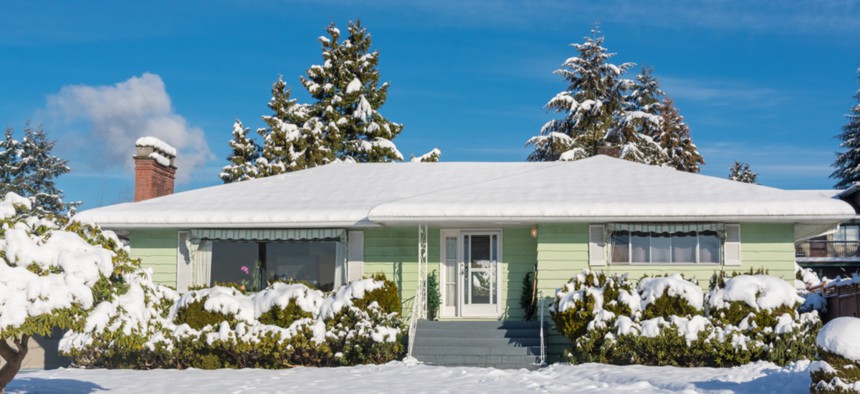In One State, a $100 Million Push to Keep the Heating on This Winter

State and local leaders are encouraging residents to consider winter heating bills now. Shutterstock
Minnesota is encouraging residents to take advantage of more than $100 million in grants to pay for their heating bills. Several other states, cities, and counties are doing the same.
Minnesota is expecting a colder than normal winter this year. For those who are behind on their utility bills, that could pose a problem. But the state is now encouraging people who will have trouble affording to heat their homes this winter to tap into millions of dollars in government assistance available for covering energy bills.
The Minnesota Department of Commerce announced last week that they received $106 million from the federal Low Income Home Energy Assistance Program, a grant system that allows states to reduce their residents’ home heating costs by making direct payments to utility companies and heating fuel vendors on the behalf of individual homeowners and renters.
To apply for funding, homeowners and renters have to make less than 50% percent of the state’s median income, which for a family in Minnesota of four is around $54,000. The average grant is around $500, but could be up to $1,600.
Grace Arnold, the temporary commissioner of the state’s Department of Commerce encouraged all eligible Minnesotans to apply, but especially “households with seniors, small children, people with disabilities, veterans and those struggling to make ends meet due to the Covid-19 pandemic.”
“The Energy Assistance Program can help those who are behind on their energy bills pay for heating, fuel delivery or furnace repairs,” she said. “Heating your home is a necessity in Minnesota, and no one’s health or safety should be at risk because they cannot afford to stay warm.”
Cities, counties and states across the country are running similar campaigns to ensure that residents stay warm this winter by taking advantage of funds from the Low Income Home Energy Assistance Program.
North Dakota’s Department of Human Services, the agency in that state that allocates LIHEAP funds, last week reminded residents that “with average low temperatures ranging from the single digits to highs in the 20s … in December and January … it’s not too early to budget for and explore programs that are available to help pay winter heating bills.”
Since LIHEAP funds are usually distributed on a first-come, first-serve basis and demand is expected to be higher this year, state and local officials are urging residents to apply as soon as possible if they know they’ll need help covering bills this winter.
The average household heating bill is expected to rise this winter as people spend more time at home, especially if members of a household are working from home or attending school online.
Pricier heating bills are set to arrive at a time when millions of households are still facing delinquent utility charges from earlier in the pandemic. While many states imposed moratoriums on utility shut offs for late or unpaid utility bills, some of these measures have expired, leaving residents on the hook for bills they can’t pay. Experts note that the loss of moratoriums in Northern states like New Hampshire, Rhode Island, and Iowa could pose problems as cold fronts roll in.
Electric and gas utility debts could reach $24.3 billion by the end of the year, according to an October analysis by the National Energy Assistance Directors’ Association. During negotiations for the federal stimulus package earlier in the year, the association told Congress that states would need more federal support this winter and asked for $4.3 billion to be set aside for LIHEAP.
The CARES Act allocated $900 million to the grant program, which the NEADA said “only scratches the surface of what families will need to stay afloat.”
With negotiations stalled for a second stimulus that could offer LIHEAP more funding, some states are promoting their own grant programs.
Cuyahoga County, Ohio, home to Cleveland, recently opened up their own utility bill grant program as their shut off moratorium is set to expire on Dec. 1.
In Massachusetts, Attorney General Maura Healey announced $569,000 in grant funding to local governments and organizations that help low income families pay off their natural gas heating bills. The grants are funded through a settlement between the state and a utility company that was improperly charging customers reconnection fees.
“Each winter, thousands of Massachusetts households struggle to come up with the funds to pay their monthly heating bills, and we expect many more to be in need this year amid the Covid-19 public health crisis,” Healey said. “This grant program will help us ensure that families have the financial support they need to stay warm during the cold months.”
Emma Coleman is the assistant editor for Route Fifty.
NEXT STORY: App helps manage work for remote staff






